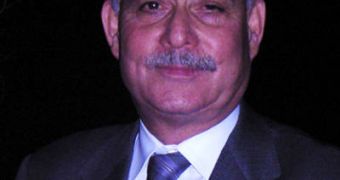One of the most unexpected solutions for the current economic and environmental problems facing the world came from noted Economist Jeremy Rifkin, who is known for his abrupt ideas in the field. Speaking at the Research Connections 2009 conference, recently held in the French capital of Paris, he proposed that the current global issue – including energy security, job losses, economic downturns – should be addressed by setting the basis of a large, “smart” power grid, made up entirely of small generator complexes, and laden with devices able to adjust consumption to the output.
Rifkin added that this idea would not only make energy widely available once and for all, and people equal partners, but that the economic crisis would also be addressed, by creating millions of jobs across Europe and beyond. In fact, the economics expert explained that the new plan would basically ensure that the entire world was interconnected, and in need of investment. As banks would start pouring money into the initiatives, the jammed engines of the global economy would break loose and would turn on again.
He also argued that the existing development models, shaped after the principles of the four-century-old capitalist doctrine, no longer applied to the world, and that they had reached the end of their run. This line of thought is not a new one, although, at least for some, the thought of living outside capitalism equates to living in Communism. Several notable researchers have argued over the years that the capitalist model is no longer sustainable, and that it helps create an elite society of the rich, while at the same time leaving most of the population in extreme poverty.
And this is, indeed, the case in the world today, with several billion people living below poverty standards, while a select few, an economic and political elite, possess all the funds, and make all the decisions. Driven by interest, they “forget” to consult with their people, and make decisions that are not endorsed by the majority (see, for example, the US intervention in Iraq), which undermines the basic principles of democracy. And all the rich, modern nations claim they support democracy.
“The great economic revolutions in history occur when two things happen. First, we humans change the way we organize the energy of the Earth; we've done this frequently over the course of our history. Second, and equally important, we change the way we communicate to organize new energy regimes. When energy revolutions converge with communication revolutions, those are the pivotal points in human history,” Rifkin shared at the conference. More than 100 top CEOs and government officials signed a letter of agreement to his plan in Paris.
He added that, “We cannot build enough centralized wind and solar parks to run Europe. If this energy is distributed over every square foot all over the world, why would we collect it only at a few points? The problem is we're using 20th century, centralized, top-down business models. Your building becomes your power plant, just like your computer becomes your information vehicle to the world. Every home, factory, industrial park, every building is converted.”
“Everyone can do that tomorrow. If you want to jump-start an economy it's always about construction. You jump-start not hundreds of thousands of jobs building solar collectors, but millions of jobs reconverting the entire infrastructure,” Rifkin concluded, as quoted by the BBC News.

 14 DAY TRIAL //
14 DAY TRIAL //